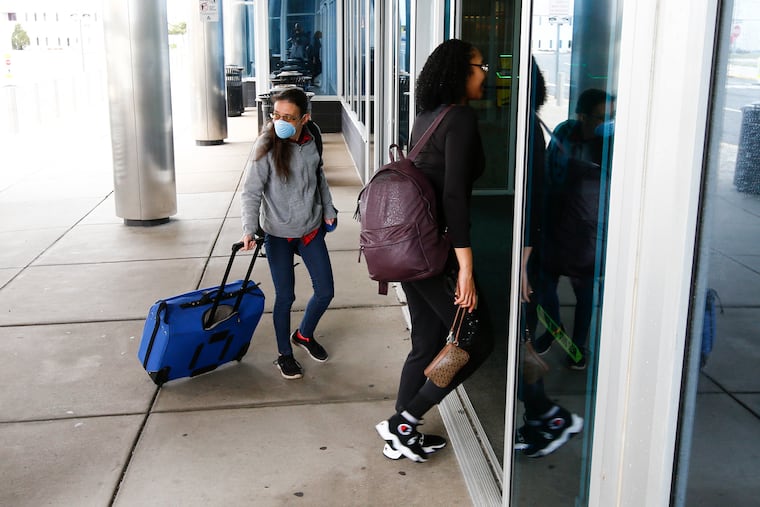Can I travel right now? What are the restrictions?
A lot of people are confused right now about what the rules are, what’s safe, and what’s allowed when it comes to travel right now. Here's what's allowed, and what's safe.

As people have been ordered to stay home for all but the most essential tasks, we’ve gotten a lot of questions: How strict is the order? Can I still get on an airplane? Will I be given a citation if I go out for a drive?
A lot of people are confused right now about what the rules are, what’s safe, and what’s allowed.
Currently, everyone is ordered to stay at home except to access, support, or provide life-sustaining business, emergency, or government services. It’s important for preventing the spread of the virus, and it is greatly encouraged that you stay home.
But if you’re under the impression that you’re going to get in trouble for leaving the house, that is probably not the case. While the order is official, there is no legal enforcement if you as an individual violate it, said Nathan Wardle, press secretary for Pennsylvania’s Department of Health. (Pennsylvania residents, however, are not allowed to drive to New Jersey to buy alcohol, and you could get in trouble if you try.)
Here’s what you need to know about traveling right now.
Traveling is OK, but only if it’s essential
Wardle said there are no restrictions on travel in or out of the state. But the stay-at-home order strongly recommends that people stay home unless they’re traveling for an essential reason (such as going to work if you’re considered an essential worker or traveling to pick up life-sustaining items). Also considered essential: bringing supplies or running necessary errands for someone who needs it, or going to care for a family member or pet in another household.
If you’re coming from another state where there have been cases of community spread, the Pennsylvania Department of Health website says you should be prepared to stay at home for 14 days to monitor and check for symptoms.
Traveling in and out of New Jersey is not restricted. However, under Gov. Phil Murphy’s executive order, all nonessential travel is strongly discouraged. Traveling deemed essential in New Jersey can be found here or at covid19.nj.gov/.
If I’m traveling, do I need paperwork?
You do not need to show paperwork, but if you are pulled over for whatever reason, you should be prepared to explain why you are not at home. You won’t be given a citation, Wardle said. “Individuals are not being pulled over for simply being on the road, but if they are committing other traffic offenses, they may be asked why they are out,” Wardle said.
Can I still get on an airplane or train?
On March 31, the U.S. Department of State issued a level 4 do-not-travel advisory advising U.S. citizens to avoid international travel due to COVID-19. U.S. airlines have already cut most of their international flights and have announced plans to reduce service within the United States by up to 40% this month. This makes booking a flight a little difficult, but if it’s for an essential reason, flying is still allowed.
Similar to road travel, traveling on a train should be limited to essential purposes. But yes, you can.
As with any situation where you are going to be in the vicinity of other people, it’s important to practice proper social distancing, including staying at least six feet away from other people, wearing a mask, and being diligent about washing your hands and not touching your face.
» READ MORE: Social distancing dos and don'ts
Can I visit family and friends?
Although traveling isn’t restricted, you’re still being urged under the current order to stay home and practice social distancing to prevent spreading the virus. If you’re the caretaker of the friend or family member you’re visiting, then it is considered essential travel. If you’re not, it is best to stay home. Wardle suggested that those who still want to see their family and friends should do so virtually.